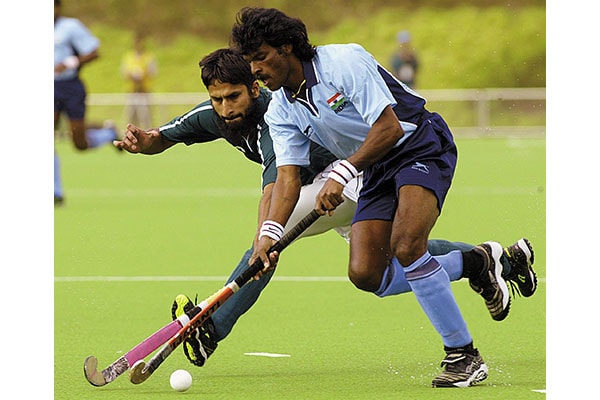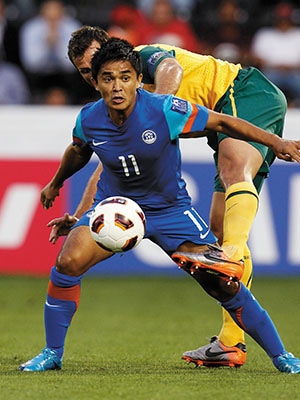A leader must lead from the front
Leadership isn't only learnt in B-schools and boardrooms; captaining a sports team offers as many lessons


Ajit Wadekar
Former cricket captain and Team India manager
Led India to historic overseas Test victories against England and West Indies in 1971
Leadership varies from country to country and industry to industry. For instance, captaining the Indian cricket team is a greater challenge than leading a foreign squad because of our diverse culture. You have to communicate in a language that everyone understands. Or else there is the risk of groupism.
A leader has to do the best with what’s at his disposal. When you’re given a team, you cannot lament that you did not get the players that you wanted. You have to play within your limitations and grab every opportunity that comes your way. Eventually, what goes into the record books are wins and losses.
A SWOT analysis is one of the must-do things for a leader. The human angle is extremely critical as well. After all, not all fingers are the same.
If you have a legend like Sunil Gavaskar in your team, there are 10 others who cannot be like him. Therefore, you cannot expect the same deeds from them.
A leader must also give due importance to those in the reserves to ensure they are not neglected. Otherwise, negativity can creep in. In fact, they are the best judges as they have an outside view of what’s happening.
Some people are born leaders while others develop their leadership skills. In life, you are bound to lead something, so you’ve got to be prepared for it. One must learn from one’s predecessors and keep improving.
It is essential to take defeats sportingly. A leader needs to realise that it’s not a one-man show and cannot behave as if he is supreme. He must learn to get things done from others. A captain has to lead from the front he cannot be a shirker. For example, if wickets are tumbling, he cannot push himself down the order. Panic sets in and wrong signals are sent if that happens.
I would get the team to have a drink with me in my room or at the bar in the evenings to strengthen our bond. We would talk about the mistakes we made on the field to begin with and later the discussion would veer towards relations...for instance, someone falling in love! Music, movies, politics and global problems would invariably be discussed too.
Ups and downs are a part of life and we must take them in our stride. There is always another day. When you get out of a bad patch and start winning again, it is very fulfilling. It is senseless to get dispirited after disappointments and overjoyed with success. You have to maintain balance and remain level-headed.
(As told to Kunal Purandare)
 Image: Reuters
Image: Reuters
Dhanraj Pillay
Former hockey captain
Four-time Olympian, led India to 1998 Bangkok Asiad gold and the Asia Cup in 2003
One important quality that sets a leader apart, particularly in sports, is how you deal with juniors. It is the job of the captain to make them feel at home, help them blend in. This is a lesson I learnt from my seniors, Pargat Singh and Jude Felix, and my coach Joaquim Carvalho. And I made it a habit when I stepped into their shoes.
A leader should wear his role lightly. Younger players joining the national team would often be in awe of senior and established players. I made it a point never to let that get in the way. I sculpted a role for myself as an elder brother. I taught and mentored juniors. After regular practice sessions, I would spend an extra 45 minutes with the kids, training them to be match-ready: How to play a long pass, when to release the ball, when to dodge, and things like that. It motivated them and helped me earn their respect.
As a leader, one should be giving. Sudha Murthy, wife of Infosys co-founder Narayana Murthy, had unwittingly taught me a lesson in generosity some years ago. She was accepting an award after her speech, in which she said that each person should know what one needs, she donated the entire cash award to an NGO.
In sports, you should remember that you’ve learnt your skills from others, and you should be willing to pass them on to those who would benefit from them.
If my boys have a bad day on the field, I do get angry with them. But once I calm down, I talk, try to sort out issues affecting performance, give them a pep talk to inspire them.
As a captain, you have to know your players’ potential if they are underperforming, you have to push.
A leader must also have good people around him. During the 1998 Bangkok Asiad, when I was captain, my team backed me to the hilt they told me, “Just guide us and we will return with gold.” That took the pressure off me and made the tournament enjoyable.
We won matches and had an equally good time off the field, never feeling the tough, competitive edge before the final against South Korea.
When a leader goes through a bad patch, he starts to doubt his own abilities. Instead of getting defensive, he should open up and ask his team members what’s wrong with his game and how that can be rectified. Only then, can you win their confidence.
And you have to back your team members and let them know you have faith in them.
(As told to Kathakali Chanda)
Bhaichung Bhutia
Former football captain
India’s most capped footballer, has led the country to three South Asian Football Federation Championships, two Nehru Cup titles and the AFC Challenge Cup in 2008
The most important thing about being a leader is to win the trust of each one of your colleagues.
For that, you have to be fair, honest and transparent. Sometimes, when you are the captain, you might not be performing well. But if the boys see that you are giving your 100 percent and not taking it easy because you are the skipper, they keep their faith in you.
There’s no single formula to be a good leader it’s a mix of natural ability and preparation. While you’ve got to be comfortable with your position, you need to prepare for certain roles. For instance, when you speak to people as a leader, you have to know what you are talking about and you have to mean what you say. This is where preparation comes in handy.
When you have a national team, you have players from different parts of the country—Manipur, Goa, Kerala, Punjab—and as a leader, you have to bring them together as a cohesive unit you need to address all kinds of cultures and lifestyles.
Obviously, you would want them to change for the better, but you can’t just ask them to change the way you want. You have to understand the players first.
When I was the captain, I would ensure that we do everything together, be it having lunch/dinner or going out for movies, even if that meant dragging a Keralite to a Hindi movie!
I also had a policy that whenever we had a bad match, we would talk about it only after 24 hours. It would give the players enough time to cool down and forget the frayed tempers. Otherwise a lost match would just be reduced to a blame-game.
(As told to Kathakali Chanda) Sunil Chhetri
Sunil Chhetri
India football captain
Led India to Nehru Cup victory in 2012
Leadership to me means using the experience and knowledge I’ve gained to empower my team-mates to mature into the best players and human beings they can become.
A leader must be communicative, level-headed and have great man-management skills. You can never say you are a natural leader and that’s that. Leadership is a mix of natural ability as well as preparation. To grow, self-improvement is always important and learning should never stop.
The national team has members from diverse backgrounds. I have travelled extensively and lived in different cultural settings across India, so it’s not difficult to connect. The common language we speak is football.
On field, I stay as relaxed as possible off it, I try to help the younger bunch and give them a conducive environment. As a leader, it’s not tough balancing personal and team performances. Yes, I wear the captain’s armband during a game and rally the troops, but, eventually, I am one of the 11 players on the pitch and have to fulfil a given role.
(As told to Kathakali Chanda)
First Published: Oct 15, 2014, 06:53
Subscribe Now